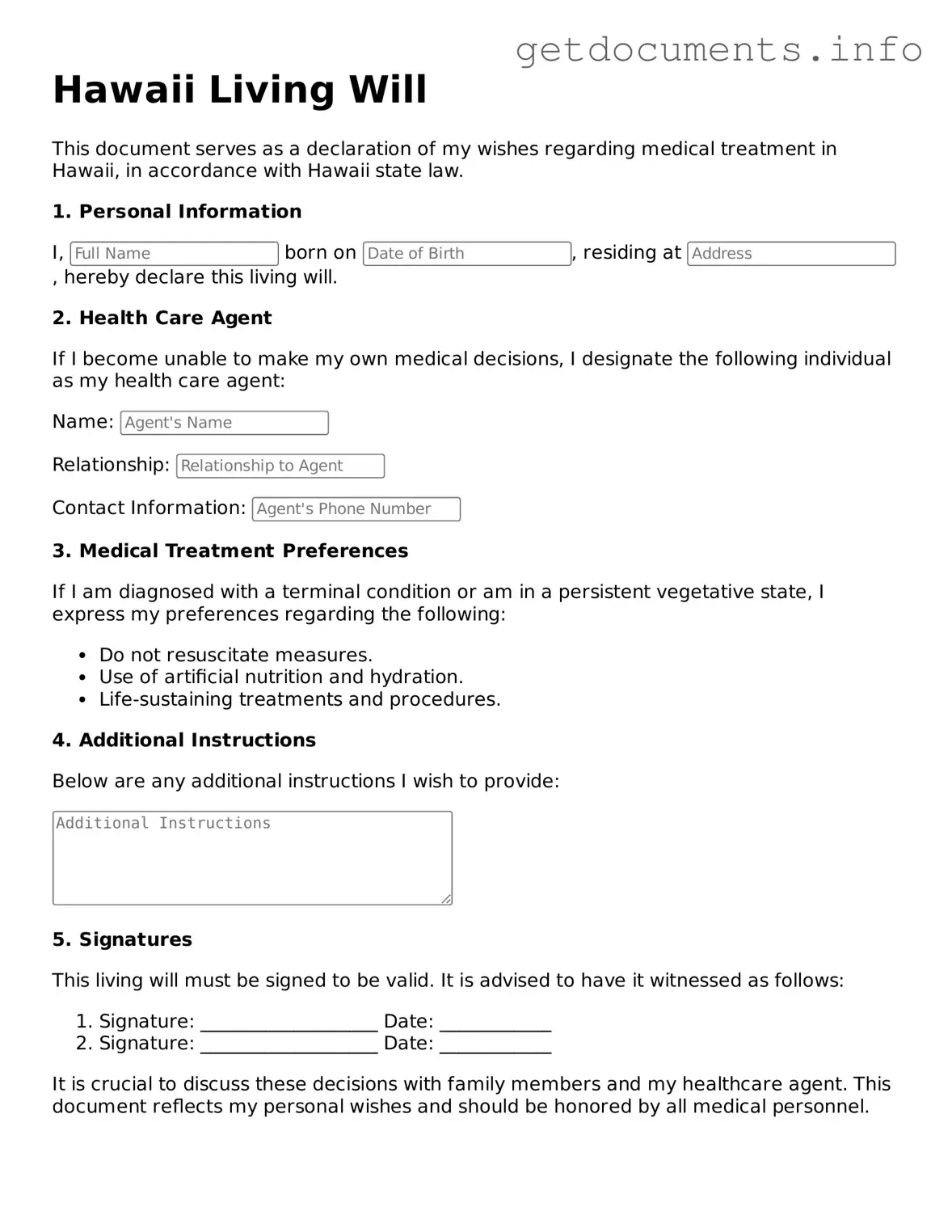Free Living Will Template for Hawaii
A Hawaii Living Will is a legal document that outlines your preferences for medical treatment in case you become unable to communicate your wishes. It allows you to specify the types of medical care you do or do not want, ensuring your choices are respected. Understanding this form is essential for making informed decisions about your healthcare, so take the next step by filling it out today.
Click the button below to get started!
Access Living Will Editor

Free Living Will Template for Hawaii
Access Living Will Editor
Got places to be? Complete the form fast
Fill out Living Will online and avoid printing or scanning.
Access Living Will Editor
or
⇩ PDF File
